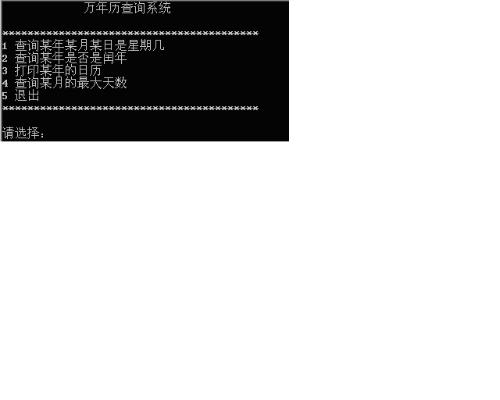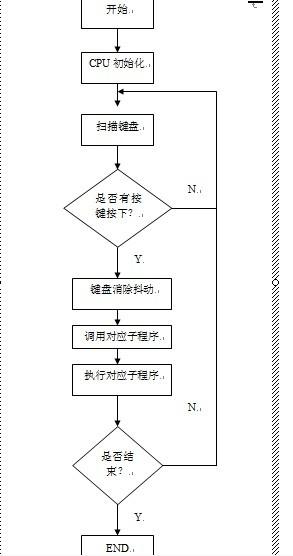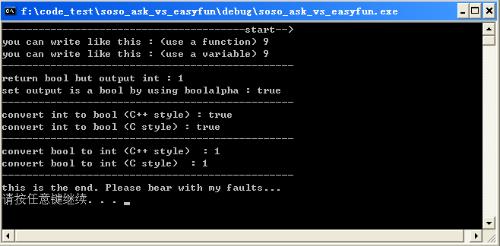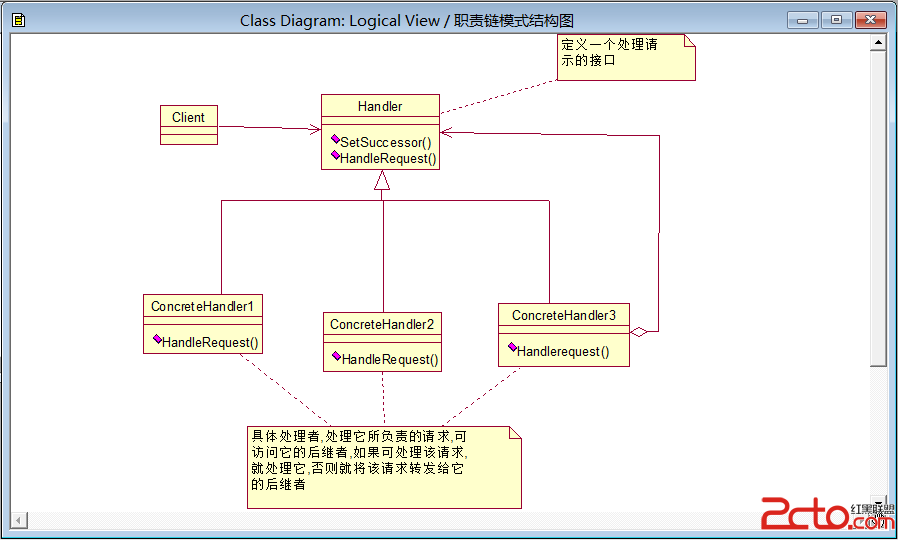C语言字符串操作函数
C语言字符串操作函数
1. 写一个函数实现字符串反转
版本1 - while版
void strRev(char *s)
{
char temp, *end = s + strlen(s) - 1;
while( end > s)
{
temp = *s;
*s = *end;
*end = temp;
--end;
++s;
}
}
版本2 - for版
void strRev(char *s)
{
char temp;
for(char *end = s + strlen(s) - 1; end > s ; --end, ++s)
{
temp = *s;
*s = *end;
*end = temp;
}
}
版本3 - 不使用第三方变量
void strRev(char *s)
{
for(char *end = s + strlen(s) - 1; end > s ; --end, ++s)
{
*s ^= *end;
*end ^= *s;
*s ^= *end;
}
}
版本4 - 重构版本3
void strRev(char *s)
{
for(char *end = s + strlen(s) - 1; end > s ; --end, ++s)
{
*s ^= *end ^= *s ^= *end;
}
}
版本5 - 重构版本4
void strRev(char *s)
{
for(char *end = s + strlen(s) - 1; end > s ; *s++ ^= *end ^= *s ^= *end--);
}
版本6 - 递归版
void strRev(const char *s)
{
if(s[0] == '\0')
return;
else
strRev(&s[1]);
printf("%c",s[0]);
}
2. 实现库函数strcpy的功能
strcpy函数位于头文件<string.h>中
版本1
strcpy(char * dest, const char * src)
{
char *p=dest;
while(*dest++ = *src++)
;
dest=p;
}
版本2
char * __cdecl strcpy(char * dst, const char * src)
{
char *p = dst;
while( *p ++ = *src ++ )
;
return dst;
}
版本3
strcpy(char * dest, const char * src)
{
int i=0;
for(; *(src+i)!='\0'; i++)
*(dest+i) = *(src+i);
*(dest+i) = '\0';
}
3. 实现库函数atoi的功能
atoi函数位于头文件<stdlib.h>中
版本1 - 附说明
int power(int base, int exp)
{
if( 0 == exp )
return 1;
return base*power(base, exp-1);
}
int __cdecl atoi(const char *s)
{
int exp=0, n=0;
const char *t = NULL;
for(; *s == ' ' || *s == '\t' || *s == '\n'; s++) //找到第一个非空字符
;
if( *s >'9' || *s <'0' ) //如果第一个非空字符不是数字字符,返回0
return 0;
for(t=s; *t >='0' && *t <='9'; ++t) //找到第一个非数字字符位置 - 方法1
;
t--;
/* 找到第一个非数字字符位置 - 方法2
t=s;
while(*t++ >='0' && *t++ <='9')
;
t -= 2;
*/
while(t>=s)
{
n+=(*t - 48)*power(10, exp); //数字字符转化为整数
t--;
exp++;
}
return n;
}
版本2
int __cdecl atoi(const char *s)
{
int exp=0, n=0;
const char *t = NULL;
for(; *s == ' ' || *s == '\t' || *s == '\n'; s++) //略过非空字符
;
if( *s >'9' || *s <'0' )
return 0;
for(t=s; *t >='0' && *t <='9'; ++t)
;
t--;
while(t>=s)
{
n+=(*t - 48)*pow(10, exp);
t--;
exp++;
}
return n;
}
4. 实现库函数strlen的功能
strlen函数位于头文件<string.h>中
版本1 - while版
size_t __cdecl strlen(const char * s)
{
int i = 0;
while( *s )
{
i++;
s++;
}
return i;
}
版本2 - for版
size_t __cdecl strlen(const char * s)
{
for(int i = 0; *s; i++, s++)
;
return i;
}
版本3 - 无变量版
size_t __cdecl strlen(const char * s)
{
if(*s == '\0')
return 0;
else
return (strlen(++s) + 1);
}
版本4 - 重构版本3
size_t __cdecl strlen(const char * s)
{
return *s ? (strlen(++s) + 1) : 0;
}
5. 实现库函数strcat的功能
strcat函数位于头文件<string.h>中
版本1 - while版
char * __cdecl strcat(char * dst, const char * src)
{
char *p = dst;
while( *p )
p++;
while( *p ++ = *src ++ )
;
return dst;
}
6. 实现库函数strcmp的功能
strcmp函数位于头文件<string.h>中
版本1 - 错误的strcmp
int strcmp(const char * a, const char * b)
{
for(; *a !='\0' && *b !='\0'; a++, b++)
if( *a > *b)
return 1;
el
补充:软件开发 , C语言 ,




